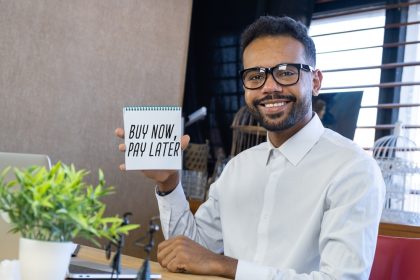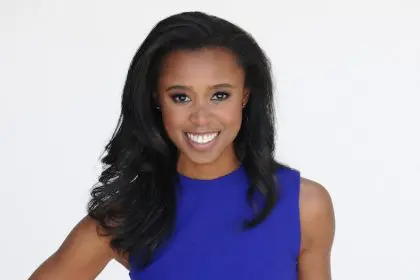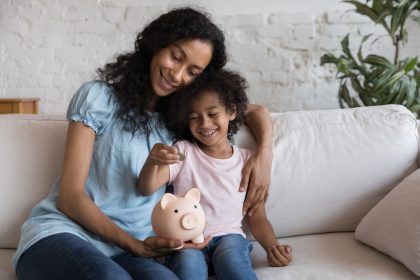As a Forbes 30 under 30 recipient and founder and CEO of the CLLCTVE, Kelsey Davis knows what it takes to build your financial portfolio and have things in order. That’s why she was the perfect person to speak at Clark Atlanta University for their 7th Annual Financial Literacy, Innovation & Technology Conference, titled “Charting New Paths and Shaping Lives.”
Davis held a fireside chat with Grammy-winning artist T-Pain, where they talked to the audience about financial literacy and technology.
Davis spoke with rolling out following the event about financial literacy and what financial freedom should look like.
Why is financial literacy important for college students?
Financial literacy is something that’s super important. I grew up with people talking about it often. … I’d hear the term financial literacy, but I didn’t know what that meant for me. I think today you have an environment where you hear the story of somebody like T-Pain — who is one of the top artists in the world — and he talks about the way that he navigated his financial journey was horrendous. A lot of that shows that, no matter how talented you are, that doesn’t necessarily [indicate] the level of education and information that you have when it comes to banking and finance. Financial literacy is a building block to be able to actually scale your career and liberate ourselves … as Black people. So much of that has to do with financial stability, equity and economics.
What’s one thing you’ve learned about financial literacy and scaling that you didn’t know earlier in your career?
You can’t be afraid of the truth. I used to always be afraid to check my bank account, and I’d say “I don’t even want to look at my credit score.” But that’s how you get got. The first step is awareness, being able to be aware of even just how much money are you spending generally. Do you know how much money you spend on food versus rent? I think awareness is the first thing not being afraid [of] because now once you have the information you can do something about that.
What are some resources that helped you?
A big part of resources is being able to meet people, network and understand other people’s stories. You don’t have to learn everything through your own experiences; you can learn from other people’s experiences, their successes and their failures. Also, being [in environments] like college campuses, I was able to get around $80,000 worth of capital from pitch competitions while I was still in college, and that’s what set my ability to actually launch my company. Then after that, getting some good investors.
What should financial freedom look like for the Black community?
Financial freedom is being able to wake up every day and autonomously be able to do what you want to do, being able to make decisions and choices. I think freedom is a choice. Do I have the ability to not just choose A or B, but can I bring C to the table and just be able to be free to navigate without economic restriction? That doesn’t have to mean being wealthy, but do you have financial liberty so that you can say, “This is the neighborhood I want to live in, this is relatively the type of car that I want to drive?” — and, at the same time, still investing and generating more income than expenses.

















